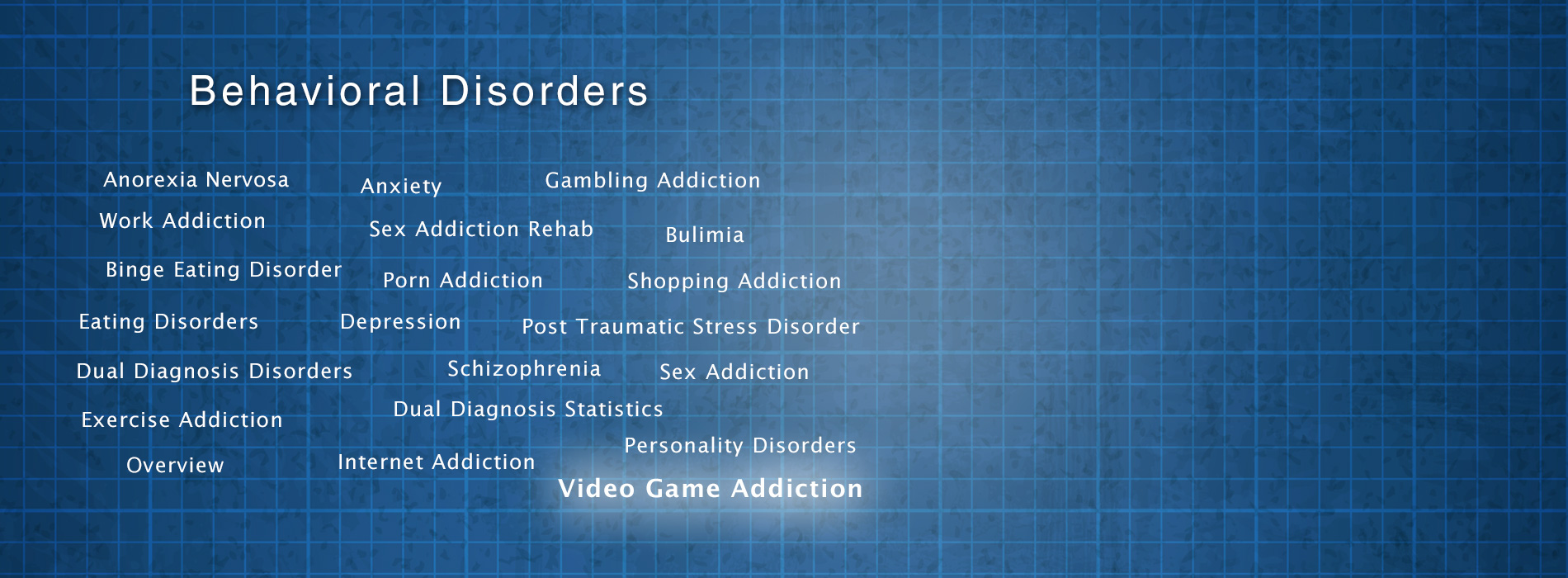![]()
Video Game Addiction
Video games can be an effective stress reliever and a great way to unwind after a long day. However, some people can take their hobby too far into the realm of addiction. Video game addiction is characterized by compulsive gaming that causes negative effects in other aspects of life.Video games are inherently addictive due to the positive feedback loop that occurs in the brain during gaming. Like winning in gambling, winning or achieving goals in video games release feel-good chemicals in the brain that mimic those released during actual achievements. These chemicals act act as rewards that encourage more gaming.
Addicted individuals will neglect relationships, responsibilities, hygiene, or health due to their frequent gaming. People who are addicted to video games will often lose sleep because they stay up playing video games, which can lead to medical problems. The sedentary lifestyle that comes along with excessive gaming can cause back or neck problems, obesity, diabetes, or other health issues. Video game addiction can cause financial problems if they buy lots of games, special equipment, or game subscriptions. They will often lie to loved ones about the extent of their video game use. If they can’t game, they will be irritable, moody, or depressed. Addicts will often game to escape from their problems or cope with negative emotions to an excessive degree.
Certain video games are specifically designed to be addictive because they rely on gamers’ monthly subscriptions to their service. These games involve small, repetitive tasks with a small payoff to activate the reward centers of the brain. These types of games are called massively multi-player online role-playing games (MMORPGs) and they are particularly addictive. Some experts theorize that up to 40% of players are addicted to World of Warcraft, the world’s largest MMORPG. Mobile or internet free-to-play games such as Farmville or Candy Crush are increasing in popularity. These games take advantage of micro-transactions that charge users small amounts of money for bonuses or special items in the game. With addicted users, these small transactions can add up quickly to become a significant financial consequence of addiction.
In the United States, it is estimated that approximately 8.5% of youths aged 8-18 exhibit problematic video game use. Rates are slightly higher in Canada at around 10%. Exact rates of video game addiction in other countries are difficult to estimate, but China, Korea, and Japan have considerable problems with video game use as competitive gaming is very popular in those countries.
Contrary to popular opinion, video game use is not associated with an increase in violent tendencies. In fact, some studies have shown a decrease in violent behavior with video game use. It is theorized that this is due to video games becoming an outlet for violent behavior, decreasing the frequency of angry outbursts. However, the culture surrounding video games can often be hostile and unhealthy, depending on the game in question. They can also facilitate social skills and encourage generosity during cooperative play.
Treatment for video game addiction include therapy and may incorporate a 12-step program like Computer Gaming Addicts Anonymous, a program similar to Alcoholics Anonymous.

